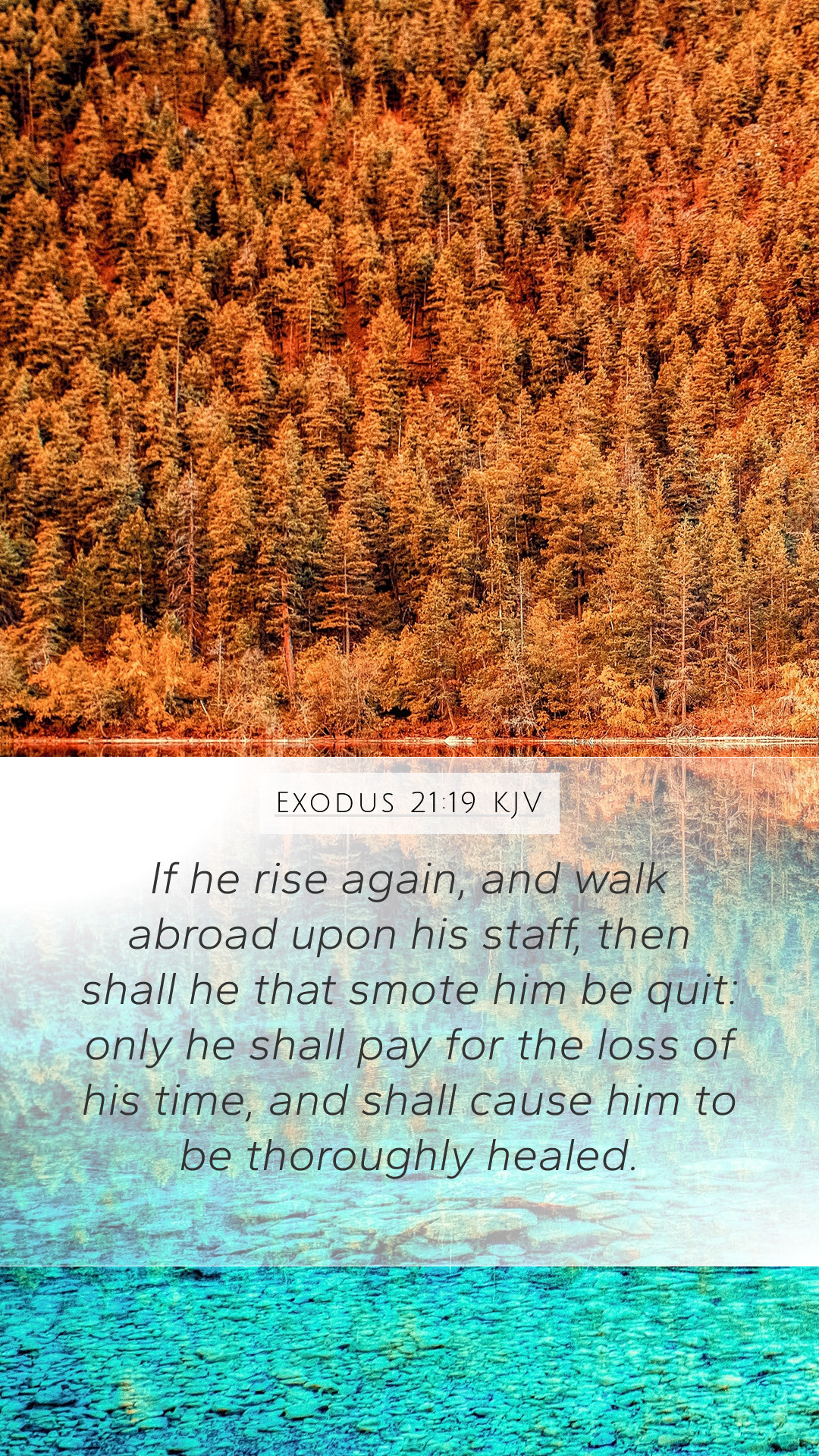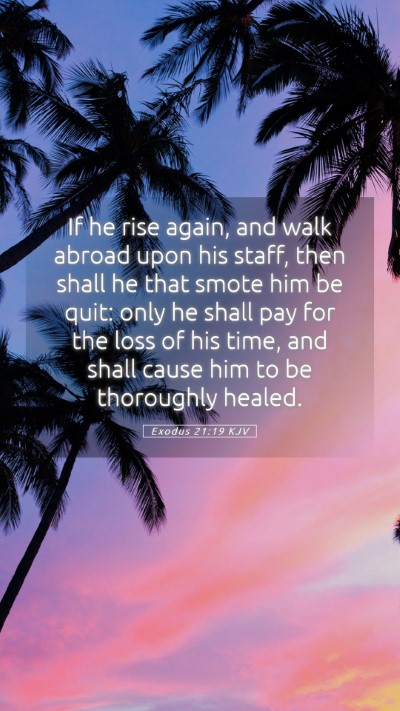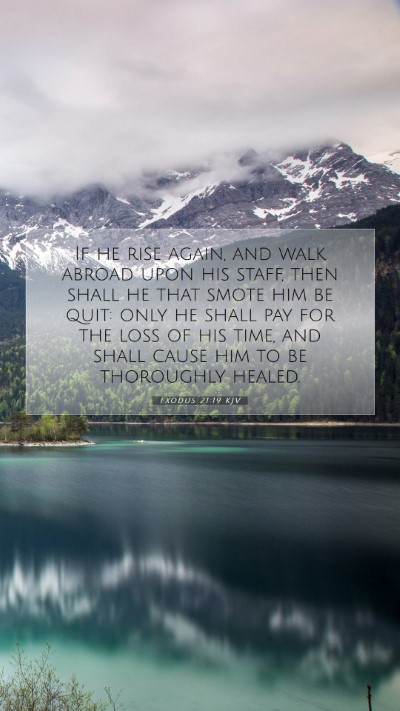Bible Verse Meaning of Exodus 21:19
Exodus 21:19 states, "If he rise again, and walk abroad upon his staff, then shall he that smote him be quit: only he shall pay for the loss of his time, and shall cause him to be thoroughly healed." This verse is part of the broader context of laws given to the Israelites that dictate justice and fairness in society, particularly focusing on personal injuries and their repercussions.
Context and Background
The verses surrounding Exodus 21:19 are part of a legal framework aimed at overseeing social justice. The Israelites had just been freed from slavery in Egypt and were being given laws to guide their newfound freedom. This specific verse addresses issues of personal injury and the obligations of the one responsible for the harm.
Commentary Insights
Matthew Henry's Commentary
Matthew Henry emphasizes the principle of equitable compensation and restitution in this verse. He notes that the law recognizes the victim's recovery as paramount, highlighting the need for the assailant to ensure that the injured party is not only compensated for their immediate injuries but also for any loss of earnings due to their condition. This law underlines the moral obligation to care for one another and to make amends when harm has been caused.
Albert Barnes' Commentary
Albert Barnes provides a detailed exegesis of the legal implications in Exodus 21:19. He points out that the verse outlines a situation where the injured party is able to recover, symbolized by their ability to walk with a staff. This highlights a key aspect of justice in Biblical law: while complete healing is desired, there is still accountability for the damage caused and for any suffering endured during the healing process.
Adam Clarke's Commentary
Adam Clarke interprets this passage with an understanding of its cultural relevance at the time. He notes that the law served as a social contract, helping to maintain peace and order in a community. Clarke emphasizes the necessity of personal responsibility: the aggressor must assist in the recovery of the injured to restore harmony. This reflects a broader spiritual truth regarding community and compassion in the Bible.
Key Themes and Takeaways
- Justice and Restitution: The verse underscores the significance of making amends when wrongdoing occurs. It ensures that justice is not only punitive but also restorative, considering the needs of the affected.
- Compassion in Action: The idea that one must care for the injured person's recovery signifies a call for compassion and empathy within communities.
- Accountability: There is an emphasis on personal responsibility, reminding the faithful that one's actions have consequences that must be addressed.
Application in Daily Life
When considering the implications of Exodus 21:19, one realizes the importance of upholding justice and caring for others. In practical terms, this can apply to situations where one has harmed another, whether physically, emotionally, or financially. The verse encourages individuals to make restitution and foster healing.
Related Bible Cross References
- Leviticus 24:19-20: "And if a man cause a blemish in his neighbor; as he hath done, so shall it be done to him."
- Deuteronomy 19:21: "And thine eye shall not pity; but life shall go for life, eye for eye, tooth for tooth, hand for hand, foot for foot."
- Matthew 7:12: "Therefore, all things whatsoever ye would that men should do to you, do ye even so to them: for this is the law and the prophets."
Conclusion
The exploration of Exodus 21:19 provides profound insights into the Biblical principles of justice, restoration, and accountability. Through its careful examination, it becomes clear that understanding Scripture requires diligence and reflection on the moral inquiries contained within each verse. For those seeking deeper Bible verse meanings, Bible verse interpretations, and Bible verse explanations, this verse serves as an essential building block to understanding God's intent for societal balance and relationships.


